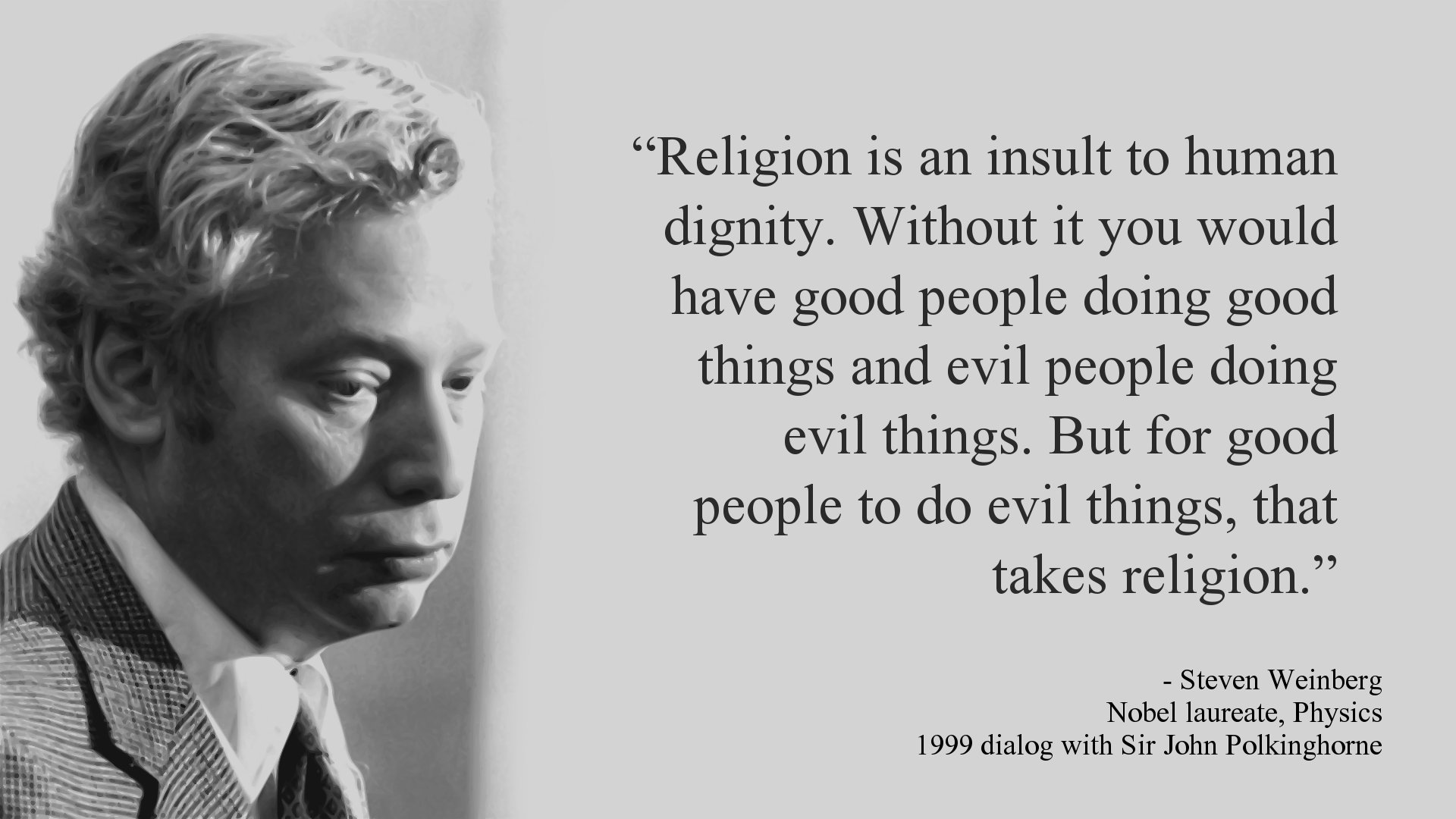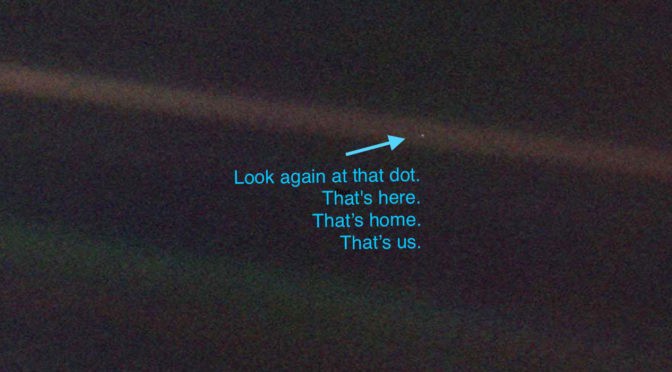As an atheist
My views on Religion
Non-physics 8 mins read
 I am a strong atheist by belief, culturally influenced by Hinduism and philosophically inspired by Buddhism. You can consider me as a Secular humanist. I believe that religions are like diseases and all organized religions should be abolished (not through violence (like the Soviets did), but through teaching ethics and explaining science to religious people). Despite not being religious I often read about religions. My views on religion are generally negative. Among all religions, Buddhism is the religion which I think is the least stupid, because it is the least religious religion. It is more about philosophy than dogmatic superstitions. But I don’t like mainstream Buddhism.
I am a strong atheist by belief, culturally influenced by Hinduism and philosophically inspired by Buddhism. You can consider me as a Secular humanist. I believe that religions are like diseases and all organized religions should be abolished (not through violence (like the Soviets did), but through teaching ethics and explaining science to religious people). Despite not being religious I often read about religions. My views on religion are generally negative. Among all religions, Buddhism is the religion which I think is the least stupid, because it is the least religious religion. It is more about philosophy than dogmatic superstitions. But I don’t like mainstream Buddhism.
My views on Buddhism
For around an year (at age 10 or 11) I considered myself as a mainstream Buddhist after leaving Hinduism. But even Buddhism is far from perfect. It carried many superstitions from Hinduism(Old bad habits don’t go easily). Be it the concept of Karma, previous lives of Buddha, the existence of Hindu gods.
For example, Gautama Buddha was very ambiguous about the existence of a Creator Deity (Brahman) and Eternal Self (Atman) and rejected them both. Various sources from the Pali Canon and others suggest that the Buddha taught that belief in a Creator deity was not essential to attaining liberation from suffering, and perhaps chose to ignore theological questions because they were “fascinating to discuss,” and frequently brought about more conflict and anger than peace. The Buddha did not deny the existence of the popular gods of the Vedic pantheon, but rather argued that these devas, who may be in a more exalted state than humans, are still nevertheless trapped in the same sansaric cycle of suffering as other beings and are not necessarily worthy of veneration and worship. He considered Nirvana to be the highest attainable state even for Devas and is beyond the power of Devas.
Another example is Buddhist cosmology. It is somewhat similar to Hindu cosmology. Both of them involve time scales of universe which are nearly correct. (To be precise their age of the universe was nearly half to that of the scientific value).
But both of them had absurd ideas like the existence of different lokas (realms) like Narakas(Hells), Svargas(Heavens) etc which are not at all scientific.
Although he did not believe in the authoity of Vedas he did believe in the existence of vedic gods. He never believed that Devas were the creators. Many people consider him as an Atheist. But in my opinion, Agnostic is a word which suits him better. Because many times in Suttas he said even if god exists he will not be expecting us to pray to him or do anything for him. The main purpose of our lives is to show our compassion to all our fellow living creatures.
Secular Buddhism
These days a new form of Buddhism called as Secular Buddhism is gaining popularity. You can consider me as a Secular Buddhist. It is just a form of Buddhism which removes all traditional beliefs that could be considered superstitious, or that cannot be tested through research.
Am I a Hindu?
If you ask me this question I will say no. But many Hindus have a bad habit of calling those who don’t believe in Hinduism as Hindus. According to them, I am still a Hindu. Hinduism mainly refers to mainstream Hinduism (there are 6 schools of Hinduism which are called Āstika). There are 5 other schools of thought in India called as Nāstika which are not mainstream. Some people consider Nāstika schools as a part of Hinduism but that is wrong. Buddhism is the major nāstika school. All of Buddhism (including Secular Buddhism) is considered to be a part of Hinduism by some Hindus. Hinduism despite having many unscientific and immoral beliefs, surely has some positive sides, in the words of Carl Sagan-
“The Hindu religion is the only one of the world’s great faiths dedicated to the idea that the Cosmos itself undergoes an immense, indeed an infinite, number of deaths and rebirths. It is the only religion in which time scales correspond to those of modern scientific cosmology. Its cycles run from our ordinary day and night to a day and night of Brahma, 8.64 billion years long, longer than the age of the Earth or the Sun and about half the time since the Big Bang.”
You can watch it here:
But when compared to Buddhism, Hinduism is still far more unscientific. But still, there are religions that are even more unscientific than Hinduism. So it is not that bad.
Quotes related to Religion
Edit: I am updating these in the quotes page.
The following are some quotes about religion that are similar to my views. My views will overlap to the maximum extent with Dirac.
“I cannot understand why we idle discussing religion. If we are honest—and scientists have to be—we must admit that religion is a jumble of false assertions, with no basis in reality. The very idea of God is a product of the human imagination. It is quite understandable why primitive people, who were so much more exposed to the overpowering forces of nature than we are today, should have personified these forces in fear and trembling.
But nowadays, when we understand so many natural processes, we have no need for such solutions. I can’t for the life of me see how the postulate of an Almighty God helps us in any way. What I do see is that this assumption leads to such unproductive questions as why God allows so much misery and injustice, the exploitation of the poor by the rich and all the other horrors He might have prevented. If religion is still being taught, it is by no means because its ideas still convince us, but simply because some of us want to keep the lower classes quiet. Quiet people are much easier to govern than clamorous and dissatisfied ones. They are also much easier to exploit.
Religion is a kind of opium that allows a nation to lull itself into wishful dreams and so forget the injustices that are being perpetrated against the people. Hence the close alliance between those two great political forces, the State and the Church. Both need the illusion that a kindly God rewards—in heaven if not on earth—all those who have not risen up against injustice, who have done their duty quietly and uncomplainingly. That is precisely why the honest assertion that God is a mere product of the human imagination is branded as the worst of all mortal sins.”
― Paul Dirac(at the 1927 solvay conference)
“Religion is an insult to human dignity. Without it you would have good people doing good things and evil people doing evil things. But for good people to do evil things, that takes religion.”

“Look again at that dot. That’s here. That’s home. That’s us. On it everyone you love, everyone you know, everyone you ever heard of, every human being who ever was, lived out their lives. The aggregate of our joy and suffering, thousands of confident religions, ideologies, and economic doctrines, every hunter and forager, every hero and coward, every creator and destroyer of civilization, every king and peasant, every young couple in love, every mother and father, hopeful child, inventor and explorer, every teacher of morals, every corrupt politician, every “superstar,” every “supreme leader,” every saint and sinner in the history of our species lived there-on a mote of dust suspended in a sunbeam.
The Earth is a very small stage in a vast cosmic arena. Think of the endless cruelties visited by the inhabitants of one corner of this pixel on the scarcely distinguishable inhabitants of some other corner, how frequent their misunderstandings, how eager they are to kill one another, how fervent their hatreds. Think of the rivers of blood spilled by all those generals and emperors so that, in glory and triumph, they could become the momentary masters of a fraction of a dot.
Our posturings, our imagined self-importance, the delusion that we have some privileged position in the Universe, are challenged by this point of pale light. Our planet is a lonely speck in the great enveloping cosmic dark. In our obscurity, in all this vastness, there is no hint that help will come from elsewhere to save us from ourselves. The Earth is the only world known so far to harbor life. There is nowhere else, at least in the near future, to which our species could migrate. Visit, yes. Settle, not yet. Like it or not, for the moment the Earth is where we make our stand.
It has been said that astronomy is a humbling and character-building experience. There is perhaps no better demonstration of the folly of human conceits than this distant image of our tiny world. To me, it underscores our responsibility to deal more kindly with one another, and to preserve and cherish the pale blue dot, the only home we’ve ever known.”
― Carl Sagan, Pale Blue Dot: A Vision of the Human Future in Space
